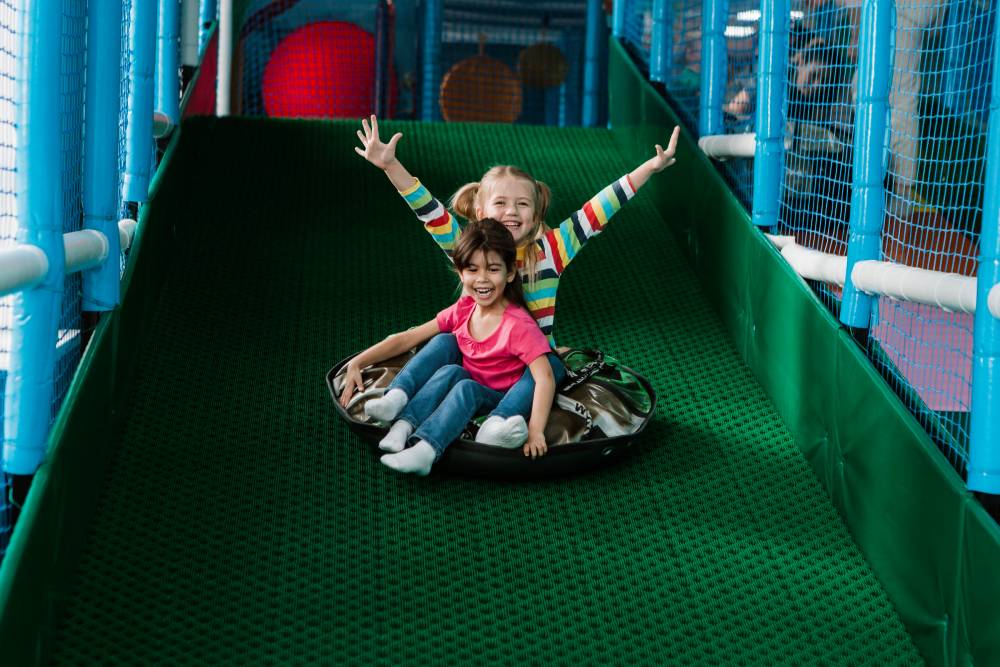Play therapy is a powerful tool for children with ADHD and sensory challenges. It provides a structured yet enjoyable environment to address developmental needs. In particular, play therapy for ADHD or play-based therapy helps children explore their emotions, improve behaviors, and enhance social skills.
This therapy focuses on using play as a medium for communication and learning. Moreover, it is tailored to a child’s unique needs, promoting growth in a comfortable setting. Through guided play, children can better understand their emotions and develop essential life skills. As a result, play therapy can foster both emotional and social development, empowering children to navigate their world with greater confidence.
What Is Play Therapy?
Play therapy is a therapeutic approach that uses play as a primary tool to help children express and manage emotions. It is particularly effective for children who struggle with verbal communication. This therapy allows children to communicate through actions, creativity, and imagination. Additionally, play therapy creates a relaxed environment where children can feel more comfortable expressing themselves.
For children with ADHD or sensory challenges, play therapy provides a safe space to explore their thoughts and feelings. Furthermore, it encourages them to practice social skills, problem-solving, and self-regulation in a fun and engaging way. As a result, children gain confidence and improve their ability to handle various situations in their daily lives.
Understanding the Impact of Play Therapy on Child Development
Play therapy for ADHD or play-based therapy involves using toys, games, and creative activities to achieve therapeutic goals. In these sessions, therapists guide the play, ensuring it aligns with the child’s unique needs. Moreover, this approach fosters a sense of control, empowering children during the therapeutic process.
Sessions are designed to be both structured and flexible, creating a balanced environment for children to thrive. For instance, activities may include role-playing, sensory games, or storytelling. These activities not only help children process their emotions but also encourage them to practice positive behaviors. As a result, play therapy offers a dynamic way to address challenges while promoting emotional and social growth.
How Play-Based Therapy Helps Children with ADHD
Play therapy offers numerous benefits for children with ADHD, addressing their unique challenges in a supportive and effective manner. Through engaging, structured play, children can develop important skills to better manage their symptoms.
- Improved Focus
Firstly, play therapy helps children with ADHD improve their attention span. Activities in therapy require concentration, which encourages children to practice focus while solving problems. Gradually, this improvement in focus extends beyond therapy sessions, benefiting children in school and at home. - Better Emotional Regulation
Furthermore, play therapy helps children identify and manage their emotions more effectively. In a controlled, supportive environment, children can work through frustrations and learn how to regulate their responses. As a result, they are better equipped to handle challenging situations without feeling overwhelmed or acting impulsively. - Enhanced Social Skills
Additionally, play therapy fosters improved social skills. Through role-playing and group activities, children learn how to interact with peers and adults in a positive manner. This not only enhances their communication but also strengthens their ability to build healthy, meaningful relationships. - Increased Confidence
Lastly, play therapy boosts children’s confidence. As they overcome various challenges in therapy, children begin to believe in their own abilities. With each success, they develop greater self-esteem, motivating them to continue working on their personal growth and progress.
Benefits of Play Therapy for Sensory Challenges
For children with sensory challenges, play therapy provides a controlled environment to explore and adapt to sensory experiences.
- Improved Sensory Processing
Therapists use sensory-rich activities to help children adapt to different stimuli, such as textures, sounds, and movements. - Reduced Anxiety
Play therapy creates a calming space where children can explore sensory experiences without feeling overwhelmed. - Better Motor Skills
Activities like building blocks or drawing improve fine and gross motor skills, making daily tasks easier. - Increased Independence
Through practice and guidance, children gain confidence in handling sensory challenges in real-life situations.
Approaches Utilized in Child-Centered Therapy
Play therapy for ADHD or play-based therapy uses various techniques to address specific needs:
- Role-Playing
For instance, children act out scenarios to practice social interactions and problem-solving in a safe environment. This helps them develop confidence and gain social understanding. - Sensory Play
Additionally, activities like playing with sand, water, or textured materials help children with sensory processing issues adapt to different stimuli. These activities support their sensory integration and promote relaxation. - Art and Craft
Moreover, creative activities encourage self-expression, helping children communicate emotions they may struggle to verbalize. This boosts their emotional awareness and promotes therapeutic growth. - Storytelling
Furthermore, therapists use stories to teach children coping strategies and encourage them to explore their thoughts and feelings. This technique fosters emotional processing and a better understanding of their experiences.


Supporting Your Child’s Growth Through Play-Based Therapy
Parents play a crucial role in maximizing the benefits of play therapy for ADHD or play-based therapy. By being actively involved, parents can help their child make the most of their therapeutic journey.
- Encourage Practice at Home
Furthermore, parents can reinforce therapy strategies by incorporating play-based activities into their child’s daily routine. By doing so, the child’s skills are continuously nurtured and enhanced. - Collaborate with Therapists
In addition, maintaining open communication with therapists is essential. It allows parents to stay informed about their child’s progress and adapt strategies as needed, ensuring a consistent approach. - Provide a Safe Environment
Moreover, creating a calm and supportive space at home is key. A safe environment helps the child feel comfortable and secure, promoting the practice of new skills without distractions. - Celebrate Small Wins
Finally, acknowledging progress, no matter how small, boosts the child’s confidence and motivation. Positive reinforcement encourages further growth, helping the child thrive both during therapy and at home.
Long-Term Impact of Play Therapy
The long-term benefits of play therapy extend beyond childhood. By addressing challenges early, children develop skills that prepare them for the future.
Improved Relationships
Children build stronger connections with family, friends, and teachers through enhanced social and emotional skills.Better Academic Performance
Improved focus and emotional regulation translate to better performance in school.Greater Resilience
Children learn to handle challenges with confidence, preparing them for success in adulthood.Enhanced Quality of Life
Overall, play therapy helps children lead happier, more fulfilling lives by equipping them with essential skills.
Conclusion
Play therapy for ADHD or play-based therapy is a proven and effective approach for supporting children with ADHD and sensory challenges. It offers a fun, engaging way to address developmental needs, allowing children to overcome obstacles with ease. Moreover, through play, children develop essential skills like communication, emotional regulation, and sensory adaptation, which lay the foundation for a successful future.
Furthermore, the collaboration between parents and therapists can significantly enhance the benefits of play therapy. By working together, they ensure that children receive the best possible support, helping them thrive in all areas of life. At Twinkle Therapies, we specialize in offering tailored play-based therapy programs designed to meet each child’s unique needs. Contact us today to learn more about how we can support your child’s growth and development on their journey to success.
